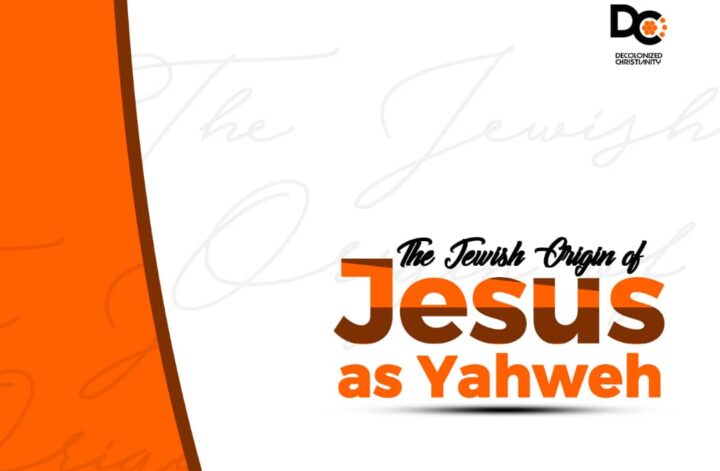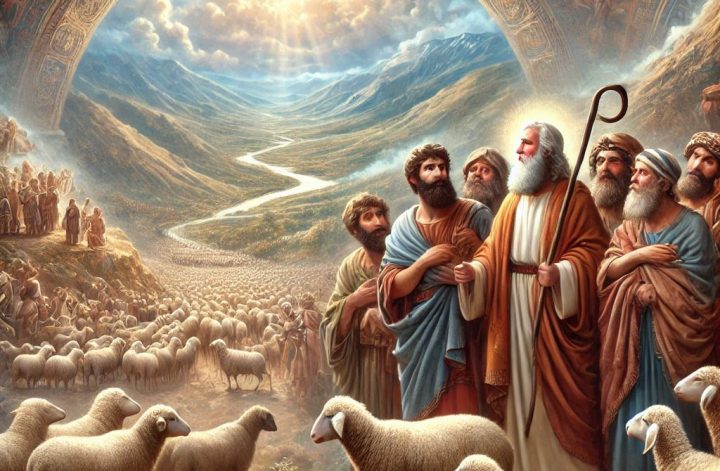Context of the Claim
John 10 is a chapter full of nuggets, and we have had reasons to park on a portion of the chapter in the past. In this piece, we are interested primarily in verses 34-36. In this pericope, Jesus’ Jewish audience asked him to tell them plainly if he was the anticipated Messiah. In response, Jesus says he had already told his interlocutors that he was the Messiah, but they did not believe him. Then, Jesus said to this Jewish crowd that he and his Father are one – a comment that the audience unmistakably understood as Jesus claiming to be divine, leading them to pick up stones to kill him. Before they could cast the stones, Jesus, wanting to ensure that they were still on the same subject of his Messiahship, reminded them that he had shown them many miracles in God’s name and asked for which miracle the Jews were going to stone him.
Recall that the conversation began with the Jews enquiring about Jesus’s Messiahship. Well, one predicted way the Messiah would be recognized was by miraculous works (Isaiah 61, Luke 4:14 – 28). That was why when John the Baptist questioned whether Jesus was the Messiah, Jesus performed miracles at that moment and told John’s messengers to tell John what they had witnessed (Luke 7:18-23).
The Jewish audience replied by saying they didn’t question the miraculous works of Jesus but his claim to be God while a human. Then, Jesus said,
John 10:34-36 NRSV
[34] Is it not written in your law, ‘I said, you are gods’? [35] If those to whom the word of God came were called ‘gods’—and the scripture cannot be annulled— [36] can you say that the one whom the Father has sanctified and sent into the world is blaspheming because I said, ‘I am God’s Son’?
As readers should recognize, Jesus here quotes from Psalm 82 apparently to further buttress his claims of divinity and Messiahship. When he said, “If those to whom the word of God came were called ‘gods,’” Jesus directed his audience (and us) to the Psalm and its context. So, to whom did the word of God come?
Strands of the Human View
As mentioned earlier, scholars and general readers have understood that question in two ways. The majority view is that the “gods” here are humans. There are different strands of this view. One strand sees those to whom God’s word came as referring to the Sinai event when Moses received the Torah on behalf of ancient Israelites. This reading appears to be further supported in that Jesus specifically asked, “Is it not written in your Torah?” If this view is correct, the “gods” in question will be Moses and the Israelites. The word “gods” then becomes a synonym for “humans.”
Another strand of the human view sees the relevant event as that depicted in Exodus 18, the encounter of Moses and Jethro. In the Hebrew text, the word “elohim” is used a few times in this passage. Moses is doing his best to teach the Torah to the Israelites and will eventually appoint judges among the Israelites to adjudicate matters according to the Torah. Seeing that “Torah” and “elohim” feature together in this passage just as they do in Jesus words in John 10, some scholars believe that the passage is a possible candidate for understanding Jesus’ comment.
These majority views suffer from similar problems. First, they do not explain Psalm 82 sufficiently. In that passage, as we already pointed out, the “gods” were in a divine court proceeding that Yahweh chaired. In other words, the council held in heaven. Also, it is a passage that condemns the said gods for ruling corruptly. This is not a testimony that applies to Moses at Sinai or afterward. Most importantly, the human view does not elucidate John 10 but arguably confuses the story. Once again, in John 10, Jesus claimed that he and the Father are one, which is undoubtedly one of the most explicit statements about Jesus’s divinity claim – so clear that his Jewish audience considered it blasphemous. Therefore, it does not help the claim for Jesus to turn around and say, “Oh, no, you guys are misunderstanding me. All I’m saying is that we all – you guys and me – are all gods, as the Torah says.” In other words, the human views would have Jesus back-pedaling on his claims, and this should be concerning to all who believe Jesus to be God. As John 10:38 shows, Jesus does not soften his claim at all. On the contrary, he heightens it when he says, “The Father is in me, and I am in the Father” – a comment that elicited a similar response from the audience as the first.
It may be worth mentioning that the Human view had its origin in Rabbinic Judaism’s midrashim (commentaries) on Psalm 82 in the second century AD (Neyrey, 655). In other words, these commentaries were produced about a century after the Jesus event. Furthermore, as modern scholarship in Judaism has revealed, Rabbinic Judaism began partly as a reaction to the first-century Jesus movement (Golan and Postell). The new Judaism sought to cleanse the ancient faith of the bastardizations Jesus supposedly introduced. Hence, it should be no surprise that the Rabbis would settle for an interpretation of Psalm 82 that would dilute the claims of Jesus and his disciples.
The Heavenly Beings View
If the Human view is misguided and hinders the understanding of relevant portions of John 10, does the gods view fare any better? Yes, indeed.
As an earlier piece in the series argued, Psalm 82 is best understood at face value. The gods in question are corrupt heavenly beings under Yahweh’s judgment. So, the ones to whom the word of God came were the elohim. The word of God that came to them was a word of judgment; the divine elohim would become mortal and die as every human does. Notice that Jesus’ “written in the Torah” comment does not undermine this view. First, the Psalms are not properly part of the Torah (or law), yet that is where Jesus’s quote is found. So, unless one wants to say Jesus was mistaken in thinking that the quote was in the Torah, “the law” here is used broadly to mean “the Scripture.” A similar usage is found in John 12:34 and 15:25.
Besides, the gods view strengthens Jesus’s argument in John 10. The argument would proceed in two ways. First, Jesus reminds his Jewish audience that their own scripture affirms the existence of gods – so they should not be dismayed beyond belief about his divinity claim. Notice that Jesus’s comment that “the Father consecrated and sent” him “into the world” further supports the claim that he is elohim who was with the Father prior to being sent into the world. Remember, elohim is a residential term. Also, notice that the argument going from “gods” (35, “if it calls them gods”) to “son of God” (36, “I am the Son of God”) does not undermine the claim. In Psalm 82, these terms are used synonymously:
Psalm 82:6 ESV
[6] I said, “You are gods,
sons of the Most High, all of you;”
So, “gods” and “sons of the Most High” mean the same thing in this formulaic Jewish poetic parallelism.
Second, having reminded his audience about the Hebrew Scripture’s affirmation of the existence of gods, Jesus could then take the argument back to where he started – that he and the Father are one:
John 10:37-38 ESV
[37] If I am not doing the works of my Father, then do not believe me; [38] but if I do them, even though you do not believe me, believe the works, that you may know and understand that the Father is in me and I am in the Father.”
Once again, Jesus invites his audience to judge if a mere human could do the miraculous works that the Messiah was supposed to do. If they judge that humans cannot do the works, they should believe the works, which would somehow lead them to the realization that the Father was in Jesus – a claim that probably wouldn’t have been controversial per se. But Jesus didn’t stop there. He also said he was in the Father, so the audience wanted to seize him again. The audience understood that Jesus’ claim is not merely that he is an elohim but that he was the Most High among the elohim.
Works Referenced
Broshi, Golan and Seth Postell. “The Christian Roots of the Jewish Faith.” YouTube, uploaded by One For Israel Ministry, 28 March 2024, https://youtu.be/fmtvhvH-s40?si=Y_CsdDHDf7qyB0gE
Neyrey, Jerome H. “‘I Said: You Are Gods’: Psalm 82:6 and John 10.” Journal of Biblical Literature, vol. 108, no. 4, 1989, pp. 647–63. JSTOR, https://doi.org/10.2307/3267185. Accessed 6 Oct. 2024.





1 Comment